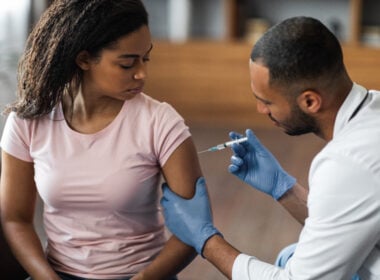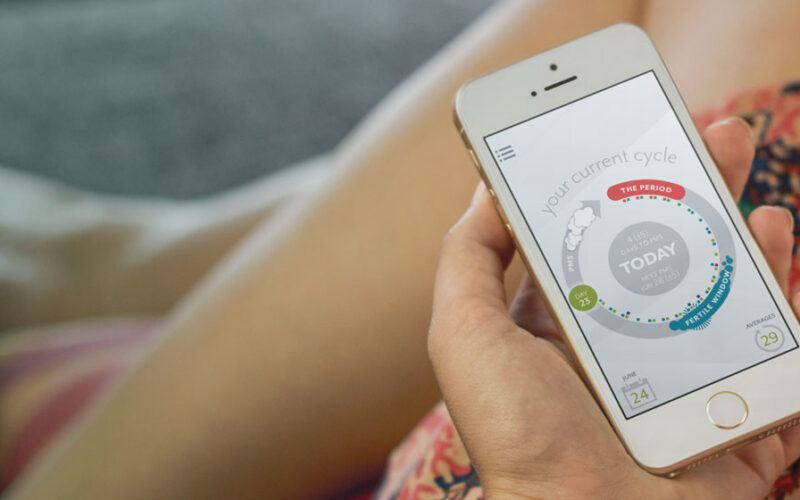Have you tried shopping for a fertility app recently? There are over 100 fertility apps or period trackers of sorts available online. And not much guidance about them! But this situation is about to change.
Until recently, the many apps developed and promoted were mainly designed to help women better understand their fertility cycle in order to achieve pregnancy or even simply predict their next period. In the last couple of years, new apps are being promoted for their effectiveness in preventing pregnancy, which is another concept altogether. The mainstream media, from CNN to the Huffington Post, has picked up the story. This sudden publicity is a double-edged sword: the media recognizes the existence of these apps and the natural methods of avoiding pregnancy they support, but the reports consistently knock the effectiveness of the methods. Who can you believe?
How can you be sure the fertility app you download is trustworthy?
It’s especially critical to understand that not all fertility apps are created equal. As it stands, the main feedback we have on these apps are user-driven comments and ratings in the app store. Does this rating system give potential users a truthful picture of the accuracy of the science the app uses to predict a woman’s fertility?
A good number of these apps are in fact based on the calendar or rhythm methods, which were invented in the 1920s and are known for their lack of ability to adapt to a woman’s individual cycle, therefore garnering lower effectiveness rates. You can’t rely on these apps for avoiding or even achieving pregnancy any more that you can rely on the rhythm method: the time of ovulation they indicate is based on an average for women and NOT your own cycle. It is not very easy to tell if an app is based on the rhythm method. Even some that appear to be based on a sympto-thermal method are actually based on calendar calculation.
But that’s not the case for all the apps. Unfortunately, most of the mainstream media still put all the apps and methods in the same bucket. But increasingly well-informed women (and they’re savvier than the media thinks), know there is a difference between the old methods and the modern methods of FAM, such as the sympto-thermal method, symptom-hormonal methods, or ovulation methods.
Still, after you sift out these ineffective apps, you are left to decide on your own between 50 options with no independent evidence-based review. But this situation is about to change.
Introducing FACTS
For the first time in the history of fertility awareness, and since 2010, we have an independent medical organization that evaluates evidence-based fertility awareness methods and promotes them to healthcare professionals. Based in Washington DC, the Fertility Appreciation Collaborative to Teach the Systems (FACTS) of fertility awareness based methods is comprised of physicians, other health care professionals and educators. It was co-founded and is led by Dr. Marguerite Duane, a board-certified family physician and Adjunct Associate Professor at Georgetown University.

This program will help unify fertility awareness proponents’ advocacy efforts to medical professionals and medical schools. It has been easy for some of these professionals to discount the claims of the promoters of individual methods. Not anymore. FACTS brings a robust scientific background and independent approach that will add a lot of credibility to the industry. They have already played this role very effectively in a published article that assesses the effectiveness studies of various fertility awareness methods.
Another major benefit is in this organization’s ability to represent the science of fertility awareness in general, not just of a specific method, which makes them much more attractive to medical schools and professionals. Hopefully this effort will be generously funded as it has the potential to revolutionize the way doctors understand women’s fertility and the power of a natural approach. FACTS is needed.
Finally, a fertility app study
Recognizing the importance that phone apps can play in increasing the general appeal of fertility awareness based methods, it made sense for FACTS to quickly get involved in providing a third party evaluation.
In an ongoing study led by FACTS member Alison Contreras, PhD, FACTS is testing electronic apps that claim to teach or record fertility charting for avoiding pregnancy. In other words, they eliminated apps that are not intended to avoid pregnancy and those that are not connected to evidence-based fertility awareness methods.
What they will study is critical for users of these methods. FACTS is reviewing the apps for:
- method and observational accuracy,
- adaptability,
- ease of use,
- confidentiality,
- support provided by the app developer.
FACTS designed a standardized grading tool and trained a team of reviewers that includes charting women, physicians and method educators to use it, so that all the apps will be systematically evaluated.
We love how technology is coming along to help women manage their own fertility and stay away from drugs, and we look forward to the results of this review, which should be completed by late summer. So stay tuned!
In the meantime, Dr. Duane said, “One way to make sure your app is effective in achieving or avoiding a pregnancy is to choose one that is provided by an organization with trained educators.”
We want to hear from you. Please let us know below which app you use, what you liked and don’t like!












I definitely think we should reiterate again and again that an app is not birth control. I see so many women using apps and learning from random online sources not realizing how much goes in to learning and understanding the method, that they could be mixing and matching rules to their detriment, and that they really need to understand how to chart and interpret their info for even an app with good interpretations to work well.
I am hoping there will be a bell curve and apps will get people interested, but once a critical mass of women start using them and realize they need to learn the method well they won’t just download an app and think that it’s birth control.
Thank
you, Hannah. You make an important point. We also see apps as raising interest in
and awareness of FAM and making the methods easier to use, and agree that an
app doesn’t replace training in a method.